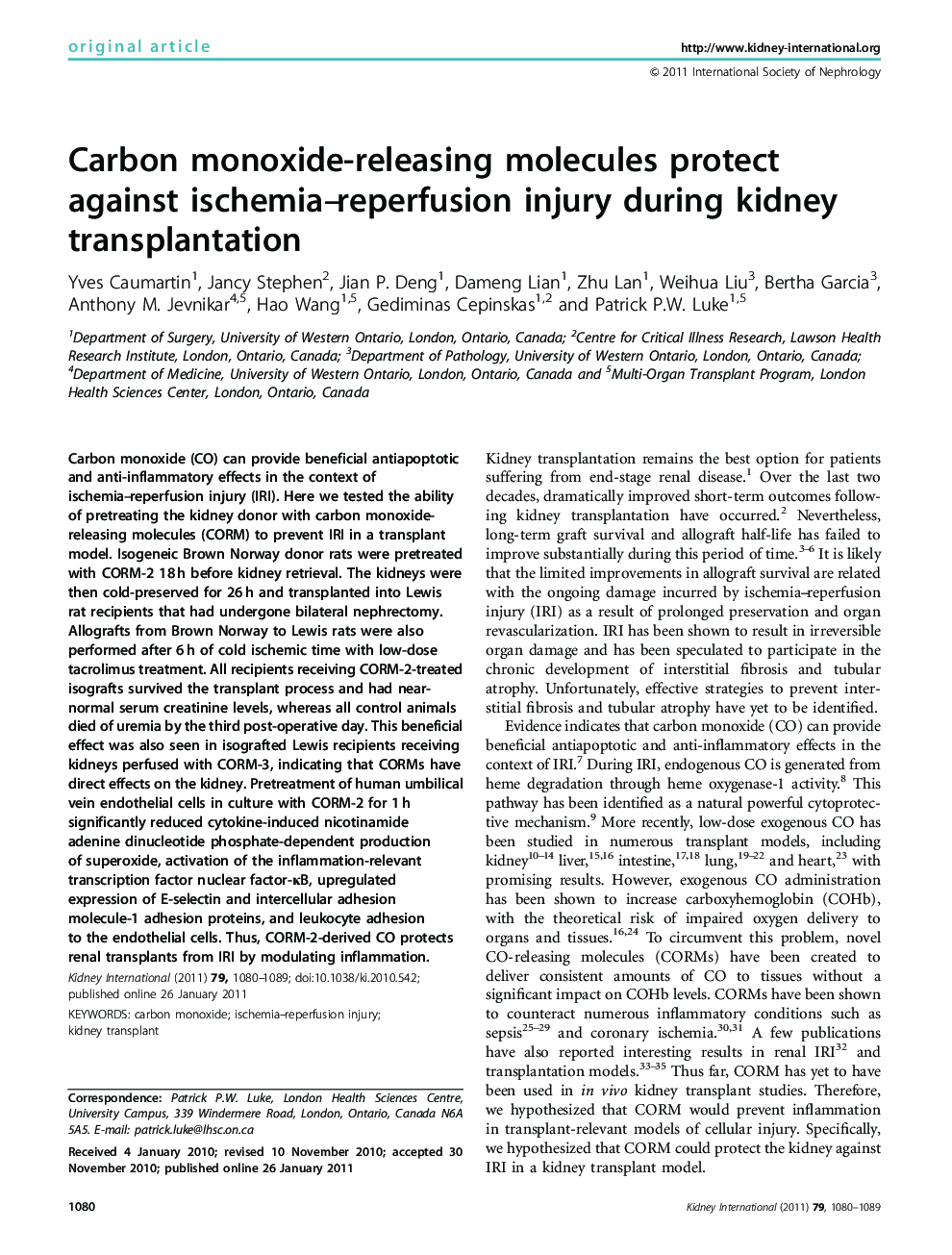| Article ID | Journal | Published Year | Pages | File Type |
|---|---|---|---|---|
| 6162633 | Kidney International | 2011 | 10 Pages |
Abstract
Carbon monoxide (CO) can provide beneficial antiapoptotic and anti-inflammatory effects in the context of ischemia-reperfusion injury (IRI). Here we tested the ability of pretreating the kidney donor with carbon monoxide-releasing molecules (CORM) to prevent IRI in a transplant model. Isogeneic Brown Norway donor rats were pretreated with CORM-2 18 h before kidney retrieval. The kidneys were then cold-preserved for 26 h and transplanted into Lewis rat recipients that had undergone bilateral nephrectomy. Allografts from Brown Norway to Lewis rats were also performed after 6 h of cold ischemic time with low-dose tacrolimus treatment. All recipients receiving CORM-2-treated isografts survived the transplant process and had near-normal serum creatinine levels, whereas all control animals died of uremia by the third post-operative day. This beneficial effect was also seen in isografted Lewis recipients receiving kidneys perfused with CORM-3, indicating that CORMs have direct effects on the kidney. Pretreatment of human umbilical vein endothelial cells in culture with CORM-2 for 1 h significantly reduced cytokine-induced nicotinamide adenine dinucleotide phosphate-dependent production of superoxide, activation of the inflammation-relevant transcription factor nuclear factor-κB, upregulated expression of E-selectin and intercellular adhesion molecule-1 adhesion proteins, and leukocyte adhesion to the endothelial cells. Thus, CORM-2-derived CO protects renal transplants from IRI by modulating inflammation.
Related Topics
Health Sciences
Medicine and Dentistry
Nephrology
Authors
Yves Caumartin, Jancy Stephen, Jian P. Deng, Dameng Lian, Zhu Lan, Weihua Liu, Bertha Garcia, Anthony M. Jevnikar, Hao Wang, Gediminas Cepinskas, Patrick P.W. Luke,
